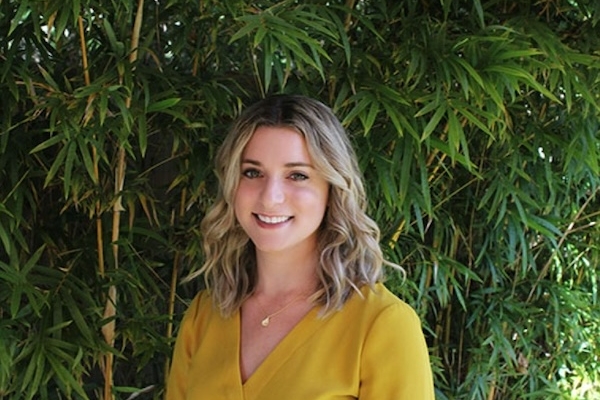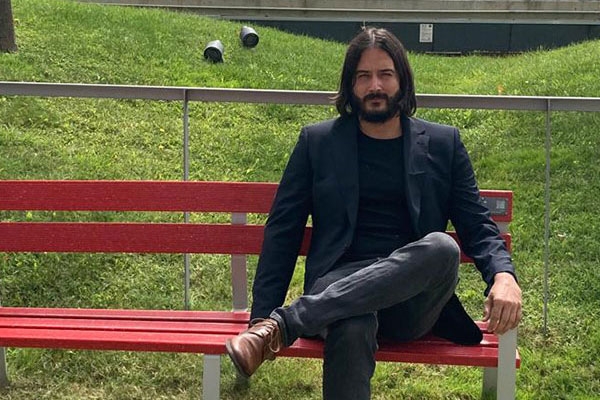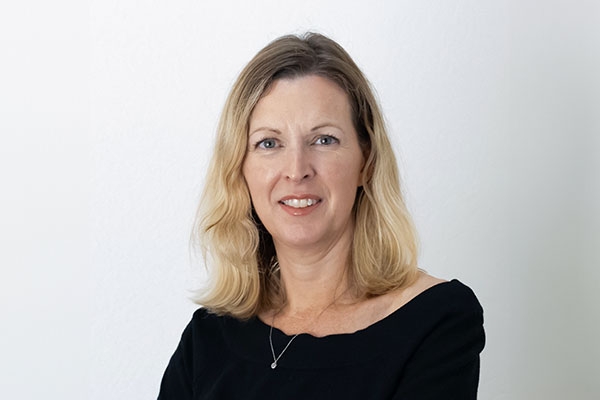Since attending high school in the suburbs of Los Angeles, Hosea Lin has been guided to a career in business. He was chapter and sectional leader of Future Business Leaders of America (FBLA), enrolled in a summer program through Academy of Business Leadership (ABL) and worked at his first job in the accounts payable department for Unified Grocers through the high school's Regional Occupational Centers and Programs (ROCP).
“My high school's college counselor and FBLA executive coach went above and beyond to provide the path toward a career in business and instilled the knowledge that the drive to success is tougher over time,” Hosea recalls.
This drive to succeed in business pushed Hosea to apply and be admitted into University of Southern California (USC)—his dream school. He graduated in 2007 with a double major: a B.S. in business from Marshall School of Business and a B.S. in accounting from Leventhal School of Accounting.
During his last two years at USC, Hosea continued to build a path toward a business career. He held multiple internships—one with Gumbiner Savett as an accountant in the Greater Los Angeles Area and one at KPMG performing federal tax work in the San Francisco Bay Area. On top of that, Hosea took part in Marshall School of Business’ ExCEL Program (International Experiential Corporate Learning Program) to add to his international business knowledge and skill set.
“The internships were influential in that I was starting my career path in financial services, one that garnered a steep learning curve,” he says. “I was interested in the technical aspect of accounting and wanted to start off on the accounting side as the basic foundation of finance and business.
“After I took part in the ExCEL Program—an eight-day series of visits with international government, educational and business leaders for USC undergraduates to experience doing business under other economic systems—the possibilities of living and working overseas opened up. I wanted to study international finance to work for a multinational company overseas,” Hosea explains. This led to a study-abroad opportunity during his final semester at Hong Kong University of Science and Technology (HKUST).
As he prepared to enter the working world after graduation, Hosea continued to jump on any business-related opportunity.
“During my senior year, I participated in on-campus interviews and received and accepted an offer to work as an analyst at the Bay Area offices of Duff & Phelps in the M&A financial due diligence or transaction advisory services department. I attended the Compatriot Youth Taiwan Study Tour that summer after graduation, which allowed me to visit family and see where my parents grew up, and I then flew back for training and employee on-boarding at the Duff & Phelps' training facility in St. Charles, Illinois,” he relates.
According to Hosea, this department focuses on “the process of financial and accounting verification, investigation or audit of a potential deal or investment opportunity to confirm all relevant facts and financial information. We also verify anything else that was brought up during an M&A transaction. Financial and accounting due diligence is completed before a deal closes in order to provide assurance to the buyer from a financial perspective of what they are purchasing.”
His next step on his financial career path led him to McKesson in 2011.
Building Both Knowledge and Experience
At McKesson, a role as a senior financial analyst for IT—specializing in health IT services—gave Hosea his first exposure to financial planning and analysis, budgeting, forecasting, fluctuation analysis and tracking of capital expenditures. But the biggest impact on his future career path was transitioning from analyzing historical data to forward-looking analysis.
“I enjoyed the business partnership with non-financial departments and being the finance expert and support to the business,” he says. “It was a great step into technology at a business unit–level within a pharmaceutical distribution corporation.”
And to add even more financial experience to his portfolio, Hosea moved to a pricing and sales finance manager role and then a senior manager position in corporate financial planning and analysis.
“I showcased that I can excel in multiple facets of finance such as pricing, and be able to partner with other departments such as sales,” he iterates. “I managed revenue and a truncated operating statement of a sub-department within the business unit that was deemed high-growth potential and identified new business streams.”
“I also wanted to brush up on my finance acumen in order to deal with finance directors in various business units, analyze earnings per share and share buybacks, fx and operational hedging, cash flow and understand the concept of adjusted non-GAAP financials.”
Although he was now in a corporate financial planning and analysis (FP&A) role, Hosea began to consider how to formalize his in-the-field education. A family connection to UC Berkeley—his twin brother was part of our Fall Program for First Semester—clinched his decision to register for our Certificate Program in Finance.
“Being in a corporate FP&A department, I wanted to expand my knowledge on various aspects of corporate finance because I am exposed to other corporate finance departments and co-workers on a regular basis—treasury, investor relations, accounting, M&A,” Hosea tells me.
“I also wanted to brush up on my finance acumen in order to deal with finance directors in various business units, analyze earnings per share and share buybacks, fx and operational hedging, cash flow and understand the concept of adjusted non-GAAP financials.”
Earning continuing professional education (CPE) credits to support his work was another bonus during the four years he was in the program, ultimately earning his certificate in 2021.
“I wanted to take advantage of the company's educational reimbursement program after obtaining my CPA license while also gaining CPE credits. The finance certificate program allowed me to fulfill my desire for being a lifelong student, quenching my thirst for knowledge and education.
“A course that stood out to me was Behavioral Finance and instructor Richard H. Lehman, who introduced a different perspective in finance outside of textbook valuation,” Hosea praises.
“The fundamentals of the class focused on bias and economic theories that shape the economy, consumer trends and the stock market, and that cannot be explained by the numbers in isolation. It was impactful to realize there are aspects of finance that cannot be taught through a book.”
Hosea shares that he had many occasions to apply what he was learning in class to his day-to-day work.
-
“I learned about currency-exchange impact on the financial statement that I was able to apply in my corporate FP&A role at McKesson when analyzing the earnings per share impact due to F/X fluctuations.
-
“I used McKesson in a business case project in my Intermediate Corporate Finance course to analyze the valuation and stock price of the company, and understand the mindset of executives and the treasury department in the timing of share repurchase buybacks.
-
“I learned basics and fundamentals in financial modeling between all three statements that I still apply in my ad hoc projects. I also incorporated what I learned in class in modeling a Discounted Cashflow Valuation model when I had to value a real estate buy versus lease opportunity while at Bio-Rad supporting the facilities department.”
Although his education with us overlapped with the height of the pandemic, Hosea credits the program for providing a smooth transition. “The online classroom experience was favorable,” he says, “as it was seamless, flexible, did not require commuting to the physical classroom and had minimal disruption. Zoom provided functionality to continue to collaborate, and my instructors directed us into breakout sessions and engaged with us at a personable level.”
Getting to the Big Career Goal
In June 2020, Hosea made his next upward career move to corporate FP&A manager at Bio-Rad Laboratories.
In this career-enhancing role, he says, “I supported general and administrative functions, which are the departments in the corporation that are non-revenue-generating. For example, I supported the global facilities and real estate and global finance departments.”
A year later, Hosea made a deliberate internal move to strategic finance in department partnership with the company’s COO.
“I was able to see the company through an operational lens and gain visibility with executives,” he explains. “I provided financial support for the company's global multi-year restructuring initiative; reported enterprise-wide headcount trends; and furnished FP&A business partnerships for the business development and corporate strategy department, business transformation department, and executive department (CFO and COO). This allowed me to prove that I am able to spearhead the FP&A efforts for global commercial organization in the Americas region, and was a career enhancement and development move to be able to manage a larger team.”
Now, Hosea is in that managerial role as senior FP&A manager for the commercial division overseeing those efforts.
So what are his next steps?
“The Certificate Program in Finance refined my corporate finance proficiency after gaining work experience that allowed me to grasp concepts to apply to the workplace,” Hosea affirms. “On a personal level, I got married in 2018 and have a supportive wife. I was able to complete a couple courses as we welcomed our first baby into the family. With the flexibility of course options and timing, I was able to complete the program without missing much in my personal life.
“As for my career, the next step is to advance to director level in FP&A as a natural progression, or pivot into a pre-IPO stage company within the health care industry.”
And his thoughts on how our certificate in finance can help you succeed in your career goals?
“A course that stood out to me was Behavioral Finance and instructor Richard H. Lehman, who introduced a different perspective in finance outside of textbook valuation.”
“Being a part of the certificate helps build self-confidence when you have to meet with other finance colleagues and professionals,” Hosea offers.
“It solidifies evidence and commitment to current and potential employers that you have a desire to continuously develop in your field of work—and have the proactive drive to initiate. It requires minimal risk and investment for a lifetime of dividends, as an entrepreneur, employee and individual. For someone who is more skilled in accounting fundamentals and wants to get a foot into finance, this program provides a stepping stone or an ideal alternative to an M.B.A.”



